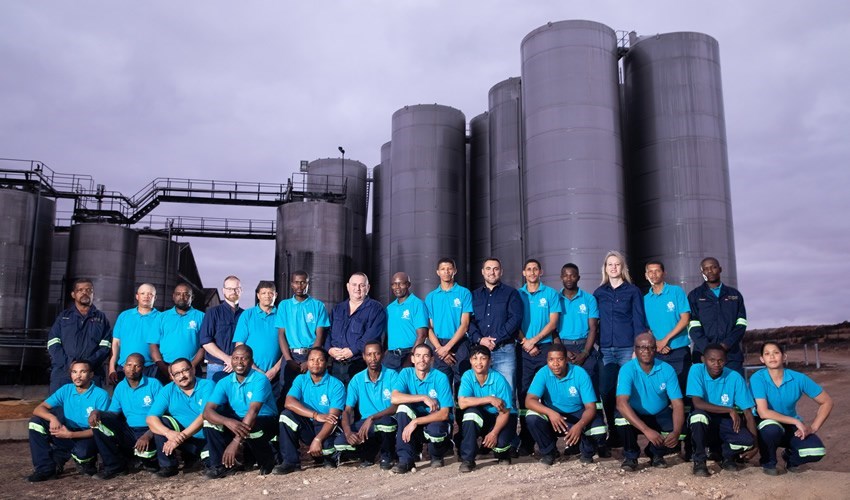Few individuals will be enthusiastic and embrace the opportunity to improve, to learn more and to recognise achievements, but one is most likely to encounter resistance, with excuses such as: “What we do is too complicated….;” “I already have too much on my plate….;” We have been doing this for a long time, trust me…….”
Evaluation is a process which critically examines a programme’s content, activities, outcomes, with the aim to improve its effectiveness. There are various kinds of evaluations, depending on the purpose of the specific evaluation. Evaluations may provide vital information to assist in decisions regarding the implementation, expansion, or even continuation of a programme. Therefore, a thorough evaluation is a powerful tool and can play a key role in positive change and is often the reason some programmes will flourish and others not. So why do we regularly evaluate the Winetech Cellar Assistants’ Programmes and what are the benefits of this exercise?
One of the most important reasons for the annual evaluation of the Winetech programmes is to ensure that the study groups and senior cellar assistant workshops are meeting the goals and achieve the objectives as confirmed in the approved business plans. Winetech has a responsibility towards participating cellars to ensure that a quality service is delivered, and that knowledge transfer takes place in a satisfactory manner. Participating cellars, as well as cellar assistants, are requested to give feedback regarding administrative arrangements, presentations, the content and to identify challenges. Regular interviews with winemakers and cellar assistants provide feedback regarding the value of the programmes and identify the challenges cellars experience in general.
Apart from the annual evaluation, a voluntary evaluation takes place during the study groups. The purpose of this evaluation is to determine the annual Top Ten participants in random order and the announcement of the Top Ten gives recognition for contributions made by cellar assistants to the industry. However, many cellar assistants participate in the voluntary evaluation, which increase their confidence, motivate them, and is considered as a personal measurement of their knowledge. Many cellars use the evaluations and results achieved to motivate and praise cellar assistants, who take immense pride in the results.
The evaluations also give an indication of the literacy levels of the participants of the study groups, which is valuable information to consider. Cellars often use the Winetech study group evaluations and the scores achieved, to confirm the literacy levels of their cellar assistants and to identify individuals for possible further skills development and knowledge transfer.

The evaluation is also a useful tool to determine if a programme is value for money for funders, but most importantly, it can assist to identify the areas which might need improvement and to meet goals and objectives more efficiently. One of the enormous benefits of an evaluation is that it demonstrates a programme’s progress and success. The information collected by means of the evaluation can be used to improve the programme’s impact. The evaluation results are most likely to indicate that the programme has strengths, as well as limitations. Therefore, it is important to include an evaluation as an integral part of a programme, to help understand the needs and challenges cellars and cellar assistants experience in knowledge transfer and how to address these needs.
An evaluation can effectively assist monitoring the progress made and one can learn from the evaluation how well the Winetech cellar assistant programmes are really preforming. It encourages the project leader to regularly seek input and feedback from winemakers and cellar assistants. There is always room for improvement, especially during challenging times, as the industry has recently been experiencing. Do we know if the Winetech cellar assistant programmes are still meeting the needs of the industry? An evaluation provides a quality control to ensure that the time, resources, and funds are well applied.
It should be noted that evaluation processes have always been part of the Winetech cellar assistant programme culture and continues to contribute to more efficient systems and change introduced when necessary. What worked five years ago, may not work today in the current situation. Therefore, evaluation becomes a valuable resource to provide the Winetech study groups and the workshops for senior cellar assistants with direction and assists with strategic decisions. Sometimes one needs to make tough decisions and the evaluation provides Winetech with essential information to do so effectively. It is also important to trust one’s gut feeling, but it is necessary to communicate regularly with cellars to confirm and back decisions up with findings. Therefore, it is important to have evidence on which decisions are based. It is also true that the annual evaluation gives cellars and cellar assistants a voice. The monthly articles confirm the major influence of the Winetech cellar assistant programmes. In a manner of speaking, the evaluation provides the stories which illustrate the impact of the Winetech programmes.
At the end of the day, Winetech needs to know if what they are doing is working and relevant. Furthermore, Winetech wants to be sure that the cellar assistant programmes are making a difference and that careers of cellar assistants are changed for the better.